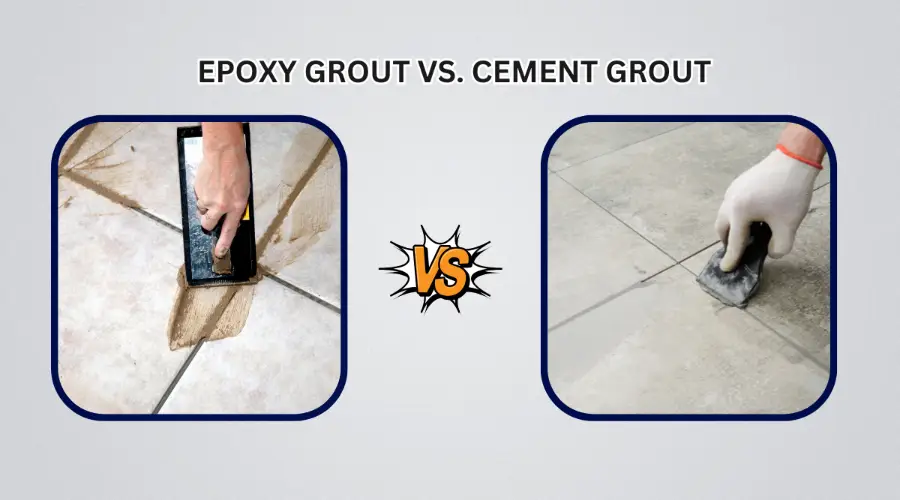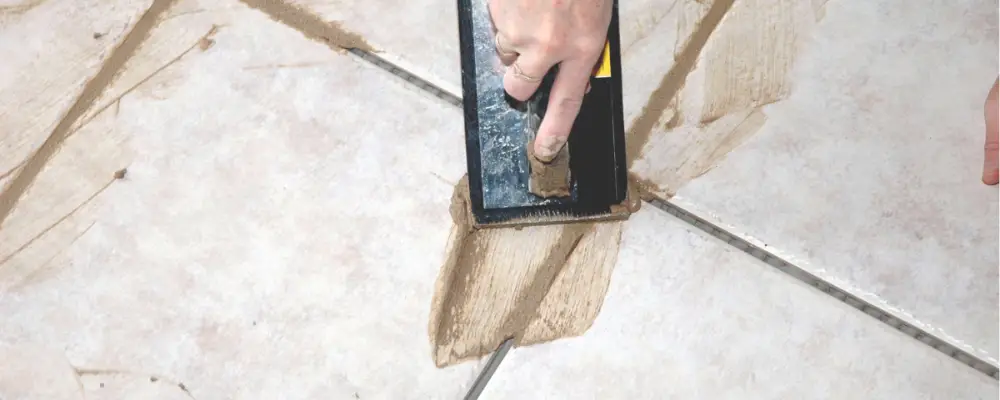In the construction sector, tiling or other floor covering is inevitable in most building projects. It has become rare to witness a construction site without tiles on floors or other areas for various purposes. This includes both commercial and residential projects. Tiles transform the outlook of any space, providing ultra-chic finishes. The next important step in fitting tiles on the floor is grouting. While we have different types of grouting, epoxy grout has become one of the most preferred choices. This is because of its incredible durability, and ability to resist mould. This article clearly explains epoxy grout and the benefits a constructor can reap by applying it in buildings.
What is Epoxy Grout?
Before we move on to epoxy grouting, a basic understanding of grouting is important. To make the tile structures strong,durable and aesthetic, the gaps between the tiles are filled with grout. Epoxy grout is made of resin, hardener, and sand aggregates for textures. The main aim is to prevent gaps between tiles, resulting in a long-lasting surface with a seamless finish. Epoxy grout can resist abrasion, has chemical resistance, and waterproof qualities. This feature of epoxy grout makes it suitable for high-traffic areas, damp settings, and applications that require hygienic practices.
Properties of Epoxy Grout
- The hardening capacity of the epoxy grout makes it significantly resist cracking, chipping, and wear and tear. The resistance in the epoxy grout increases the longevity and reduces the maintenance requirement.
- The impermeable nature of epoxy grouts prevents water from permeating through them. This makes them suitable for places that are often exposed to moisture. They prevent the floor from any damage and staining.
- The non-porous surface makes epoxy grout less susceptible to stains. Non-absorption of liquids or contaminants makes it ideal for high-traffic areas.
- It can withstand exposure to chemicals, cleaning products, and acid substances. The formulation of epoxy grout makes it capable enough to encounter spills or usage of stronger cleaning solutions on the floor.
Applications of Epoxy Grout
The locations where epoxy resins are primarily used are areas that demand superior strength, waterproofing, and stain resistance. They are:
- Areas that are often exposed to water prefer using epoxy grouts for their waterproofing capacity. Some of the areas in residential places are bathrooms, showers, kitchens, laundry rooms, pools, etc.
- They are even being used in entryways and hallways, kitchen floors, and commercial settings as their durability and stain resistance play a crucial role in maintaining floor finishes.
- It can even be used in natural stones like marble, granite, and limestone. The gentle nature and stain resistance of epoxy grout makes it appropriate for these applications.
- Some other prominent locations where epoxy grout is prioritised are chemical industries, production and storage workshops, laboratories, dyeing plants, paper mills, tanneries and food industries.
- The versatile nature of epoxy grouts makes them suitable for various tiles such as ceramic, porcelain and vitrified.
How to Apply Epoxy Tile Grout
While the process of applying epoxy grout is simple, certain steps need to be considered sequentially. They are:
Step 1: Before we use or apply epoxy grout, we must make sure we have a proper surface. Preparing the surface is important as it determines the positioning of slides. After the adhesive or mortar that has been applied underneath a tile sets well, spaces and grout joints should be cleaned well. Remove dirt, dust, water or excess adhesive or mortar.
Step 2: Combine the epoxy grout and hardener according to the manufacturer’s instructions. Air entrapment in the resin can be prevented by not overmixing. Mix until you get a smooth and consistent-coloured paste.
Step 3: Avoid the tool getting hardened with epoxy resins as this will make them non-reusable. Apply water to clean the tools immediately. One may prefer using mechanical mixers, however, the addition of water as one component with the mixture should be avoided. Personal Protective Equipment (PPE) is a must-have before applying epoxy grout.
Step 4: Use a rubber float tool or weber tool squeezer to fill the joints. Make sure you fill the gaps with grout till it is level with the edge of a tile. A sponge or tool can be used to remove excess grout immediately to avoid uneven surfaces. A damp sponge will prevent water from compromising chemical resistance by making a circular motion.
Step 5: After applying the epoxy grout, the applied area should be isolated. This will prevent any potential damage to the setting. Without damaging the grout, remove the film from vertical surfaces using a non-abrasive cloth or pad. For 30 minutes, do the final cleaning and touch-ups and repeat the same for vertical surfaces for 20 minutes. Following these steps, one achieves a professional and long-lasting finish.
Epoxy Grout vs. Cement Grout

| Epoxy Grout | Cement Grout |
| It is composed of epoxy resins combined with a filler powder. | Cement Grout is made from a mixture of cement, water, and sand. |
| It has a waterproofing feature. | Low waterproofing unless it is sealed. |
| It resists stains. | No resistance to stain unless sealed. |
| It is chemical-resistant | It is less resistant to chemicals. |
| It is more flexible and resists any movement within. | It may crack under movement. |
| Epoxy resins have a shorter curing time compared to other materials. | It takes a longer time to cure. |
| It is very expensive. | It is affordable. |
| It doesn’t require sealing, negating the need for periodic maintenance. | It requires periodic maintenance. |
| The usage of synthetic resins makes them less eco-friendly. | The usage of cement makes it less eco-friendly. |
Conclusion
The introduction of epoxy grout has transformed the tiling industry with its high strength, moisture resistance, stain resistance and resistance to chemicals. Its application ranges from domestic places such as kitchens and bathrooms to commercial and industrial locations where strength and cleanliness remain a preference. Even though it costs more than ordinary cement grout, one will appreciate the performance, maintenance and design flexibility it brings to a project. As the world moves on, epoxy grout is still paving the way for a new generation of construction materials. By knowing the specific details of the product and the correct methods for installation, constructors can achieve a level of impregnability that enhances the installation and the appearance of the tiled area. Therefore, for anyone in the market for tile grout, epoxy grout is the best all-rounder.

